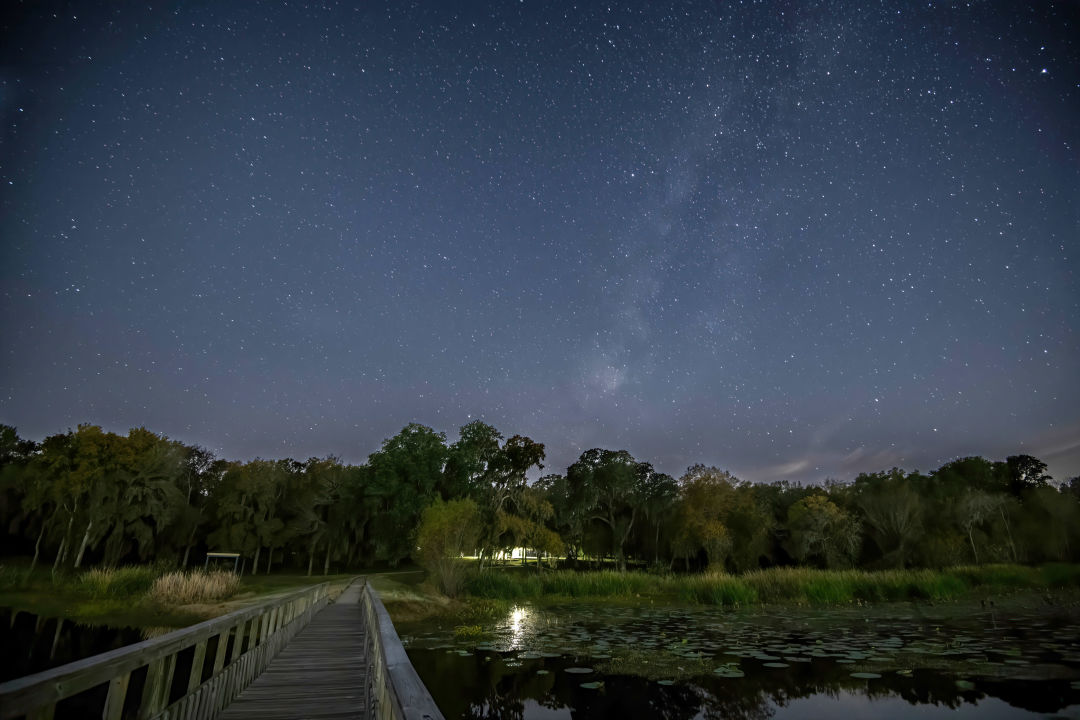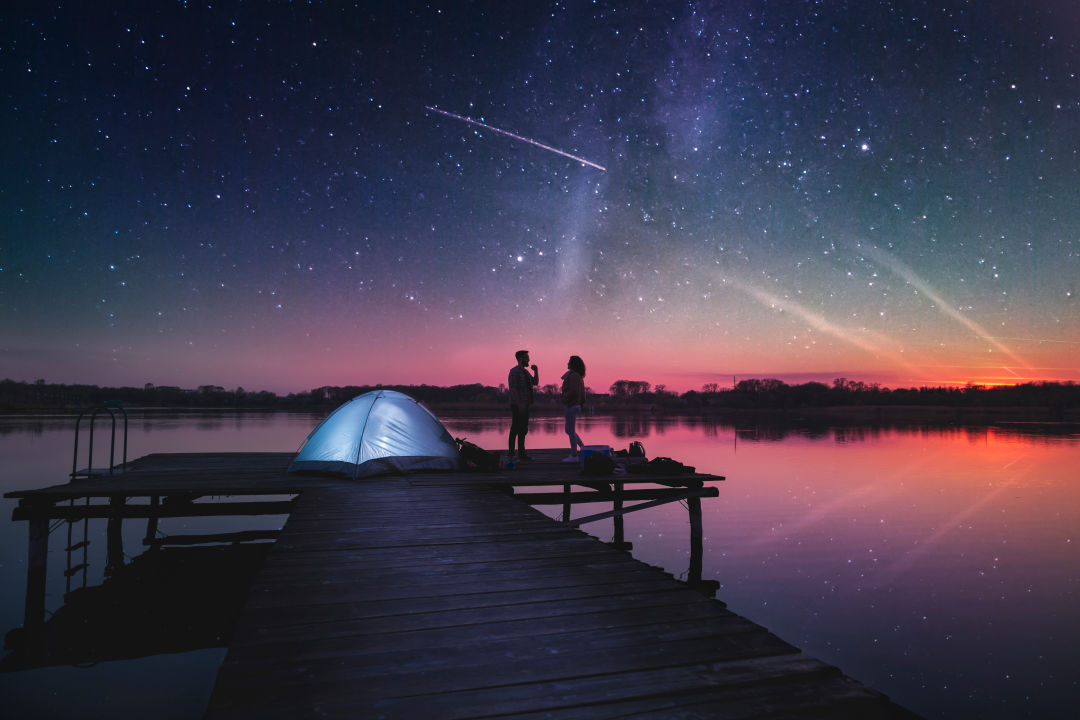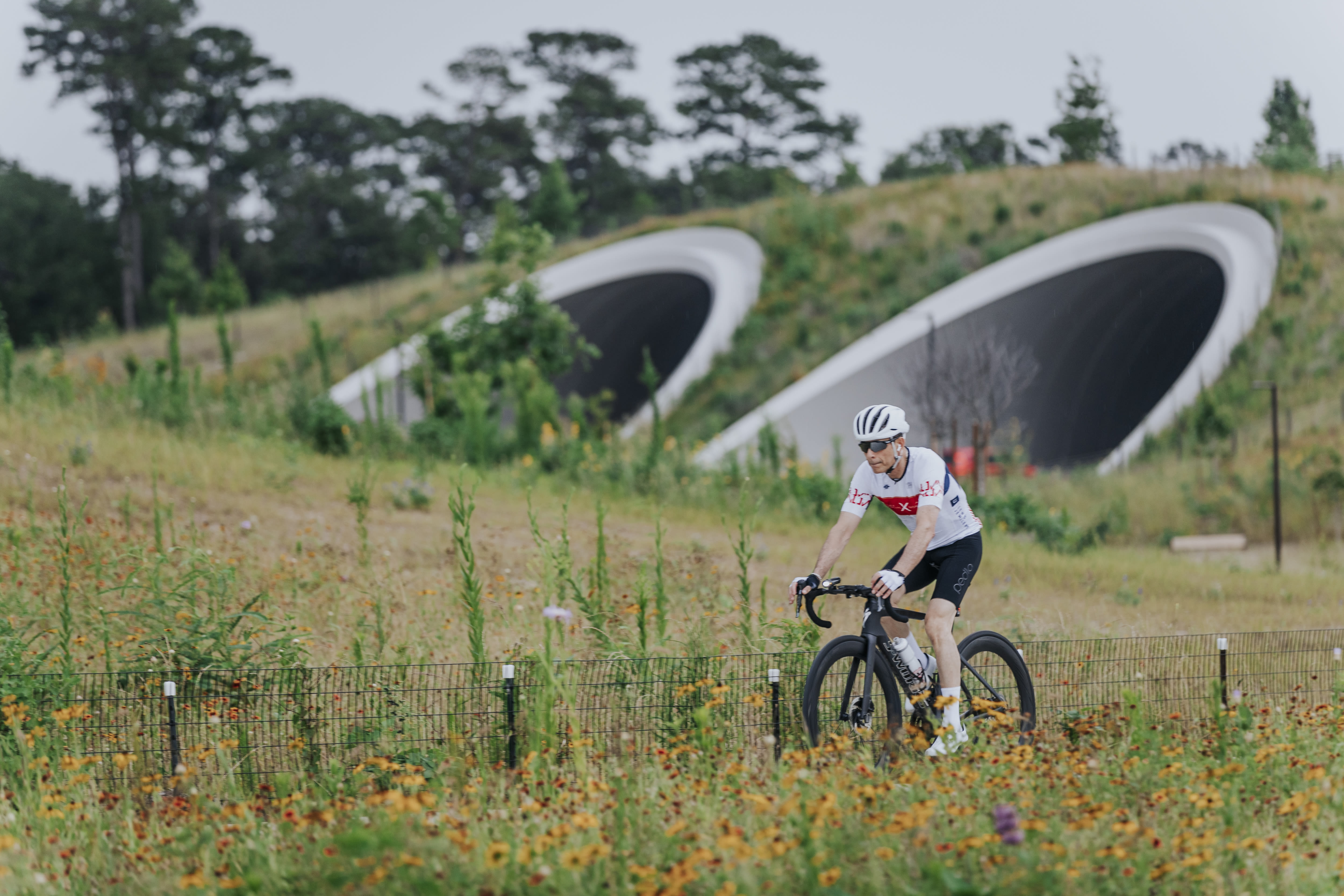Great Stargazing Spots Houstonians Can Easily Drive To

You don't have to drive far from Houston to see a starry night sky.
Image: David ODell/shutterstock.com
For a place called Space City, Houston’s starscape leaves much to be desired. Like all urban areas, light pollution floods the night sky, sadly dimming our hopes of stargazing.
Houston weather failed many who were hoping to see the total solar eclipse on April 8. If you were one of the lucky ones to catch a glimpse, you're likely riding the high of how cool the creations of the universe are. Gazing at the sky doesn't have to stop there.
Despite the light pollution and unreliable weather, amateur Houston astronomers shouldn’t count themselves out of all the fun: dark skies and more chances to see the universe are within your reach, though it will take a set of wheels. So pack your telescope, fill up your tank, and head to one of these cosmic destinations.
Brazos Bend State Park
Needville
If you’re looking for something close to home, Brazos Bend State Park is the ideal stargazing location. At this spot less than an hour from downtown, the city’s infamous light pollution is still a little visible, but not so much that it ruins the night sky. Star seekers can look forward to traversing the park’s many trails with their binoculars or settling down by the Brazos River with their telescope. If you stay overnight in a rented campsite, your stargazing won’t have to end at the park’s 10pm closing time.
Galveston Island State Park
Galveston
Although Galveston has its fair share of light pollution, this stargazing spot is still worthy of your time. Galveston Island State Park is located far enough from the heart of the city that you can enjoy clear skies and spottable constellations at night. Set yourself up on the beach side of the park with your binoculars, or stroll along the boardwalks while the stars shine down on you from above. After a long day of outdoor activities, make this park your last stop before heading home. Or better yet, camp out for the night.

George Observatory is a great activity for the kiddos and space-obsessed adults.
Image: Sofia Gonzalez
George Observatory
needville
While just strolling through Brazos Bend State Park at night will give you the chance to spot a constellation or two, the George Observatory offers guided tours of the stars. A collaboration between the park and the Houston Museum of Natural Science, the observatory is equipped with everything you need to advance your astronomical education, including powerful telescopes, live camera feeds, constellation laser tours, and on-site experts. Use of the observatory requires a reservation in advance, but on the off chance your chosen night has overcast skies, you can still look forward to seeing previously captured images and taking a tour of the area.
Houston Astronomical Society Dark Site
Columbus
Located 80 miles west, the Houston Astronomical Society’s Dark Site is a hard-core astronomy buff’s dream with various stargazing resources. Access to the site requires membership and orientation training, and if you want to visit the observatory and its three telescopes, you’ll need to participate in an additional training course. But if you’re up for the commitment, the membership dues and training are a worthy trade-off for impeccably clear skies closer to home. Plus, HAS membership includes opportunities to attend Texas Star Parties—stargazing gatherings that bring together amateur astronomers from across the state.
Sam Houston National Forest
new waverly
At first glance, a heavily canopied forest doesn’t seem like the ideal place to access clear, open skies, but Sam Houston National Forest’s trees are the key to its stargazing greatness. The forest is only an hour away from the city, but it’s just far enough for the tree canopy to block Houston’s light pollution, so the stars are the only things brightening the night sky. Rent a campsite and stay overnight to enjoy the atmosphere at its darkest, and while you’re waiting for the sky to dim, make the most of the forest’s trails and lakes by hiking, biking, and canoeing the day away.

There's too much light pollution in urban areas like Houston, but drive out to the country and you're in for a treat.
Sam Houston State University Observatory
huntsville
Just a little over an hour north of downtown, the Sam Houston State University Observatory offers open observatory nights. Dealing with bad weather? Swap natural skies for the university’s planetarium, which provides free star shows to the public a handful of times every month. While it’s not quite the same experience as the one you’d get at the observatory, the shows provide an extra dose of interstellar educational content, covering topics like the hypothetical existence of a ninth planet in our solar system and the death and birth of stars.




